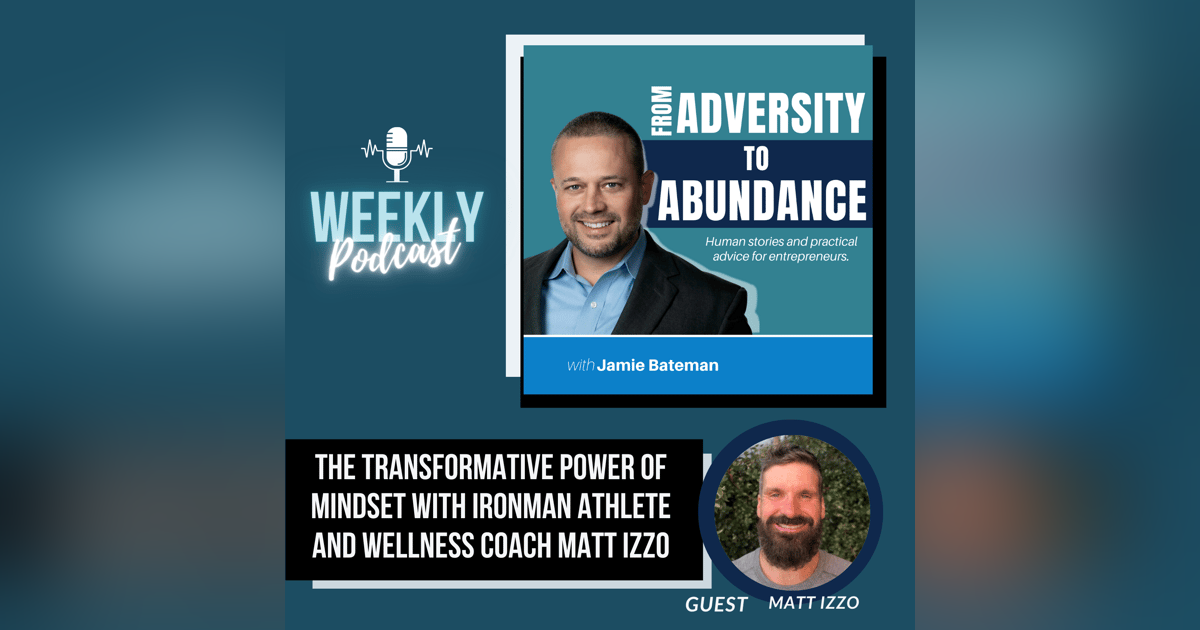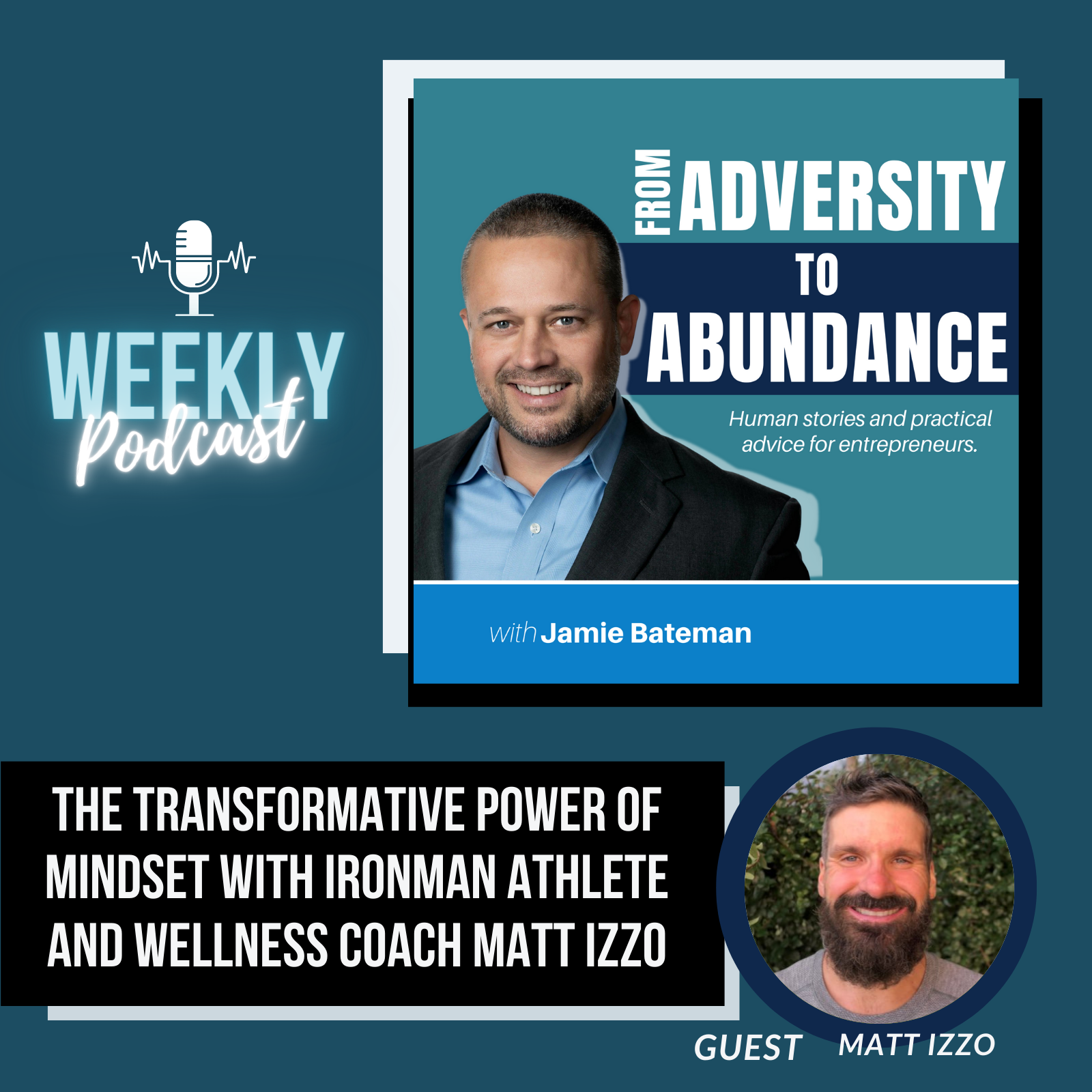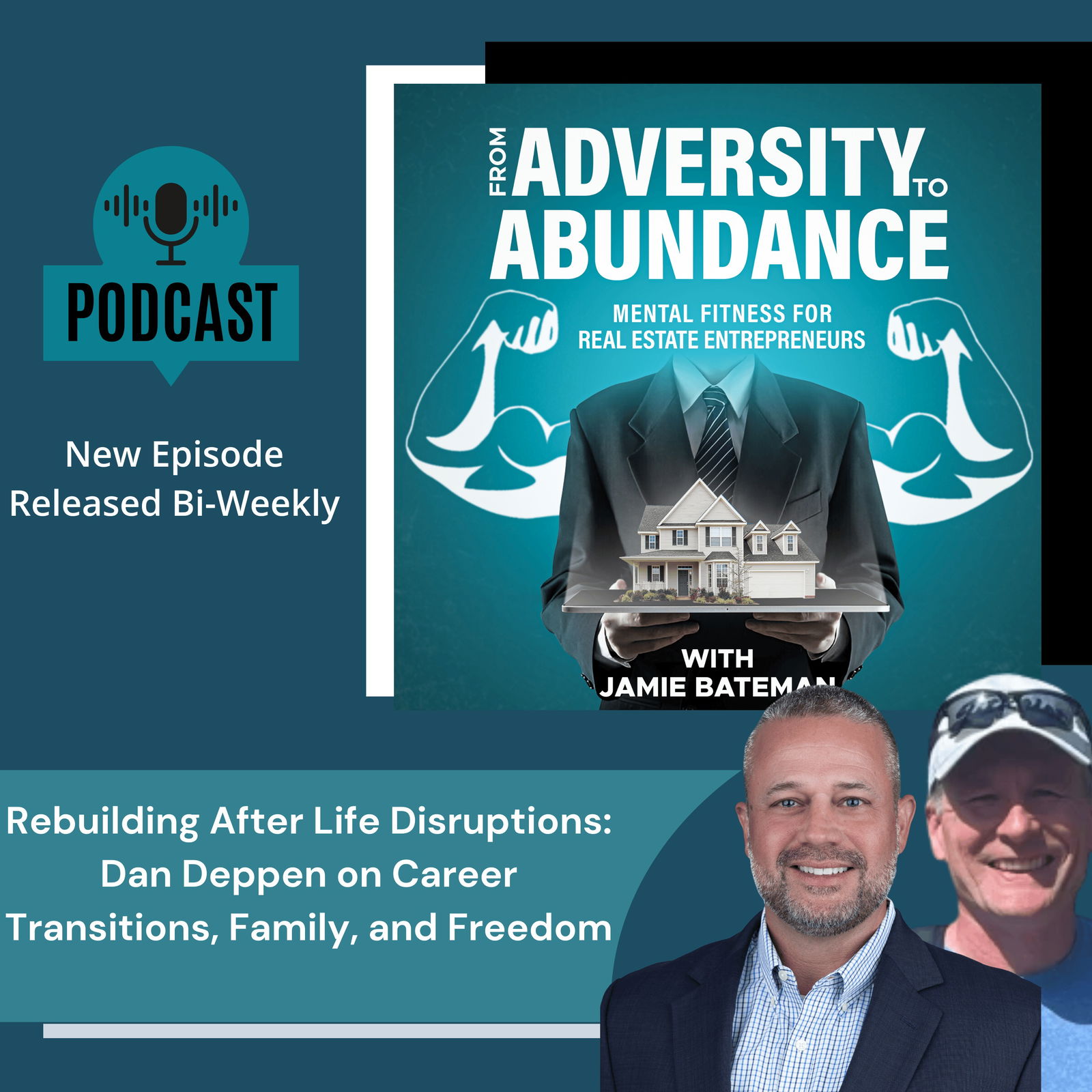The Transformative Power of Mindset with Ironman Athlete and Wellness Coach Matt Izzo


Matt Izzo is a transformation expert, a holistic fitness coach, and an Ironman athlete. He spent most of his life being obese and depressed. He had low self-esteem and self-limiting beliefs, which held him back from unleashing his potential. Then, he transformed himself into the positive role model he is today. He went from thinking he could run only 3 miles to losing 75 pounds and completing an Ironman.
Matt is now a true leader in the fitness and wellness world. But that came only after he conquered his self-limiting mindset to gain the power and confidence to tackle his challenges. Through his ups and downs, he has realized that completing his goals isn’t the end. He needed to keep pushing forward, maintain consistency, and work towards new goals. Join Matt as he brings Jamie up to speed with his incredible story. Now Matt is focused on helping others transform themselves to live their best lives.
“You have to know how to treat yourself with unconditional love. And treat yourself with compassion for when you're not making the mark, but hold yourself accountable, demand more from yourself, and go out and execute that.”
“If you believe in yourself, are committed to something, and show up consistently, you will be successful.”
Tune in as Matt and Jamie talk about:
· Matt’s positive take on naysayers.
· His business model and goals.
· Matt’s mindset and training approach before the Ironman.
· The effect of the pandemic on his plans to compete in a race.
· Challenges he faced competing in the Ironman.
· How he overcame his struggles while running 26.2 miles.
· The next objective of his fitness journey.
· How walking can be more beneficial and healthier than running.
· How lack of self-belief holds people back.
· Why you must become your own best coach.
· The Internet can be extremely beneficial or detrimental.
· Biggest challenges in his coaching business.
· Twitter is his most valuable platform
· What can people expect from his coaching?
Books and Resources
Can't Hurt Me: Master Your Mind and Defy the Odds, Book by David Goggins
Previous episode with Matt
Connect with Matt
TWITTER: https://twitter.com/mattizzo
INSTAGRAM: https://www.instagram.com/mattizzofitness/
YOUTUBE: https://www.youtube.com/@mattizzofitness8286
TIKTOK:
https://www.tiktok.com/@mattizzofitnessis_from_webapp=1&sender_device=pc
Sign up for a free newsletter and get a recipe guide for fat loss. Check out: https://mattizzofitness.aweb.page/p/43770921-9a58-4d5c-bff8-b3da23a3d1f7
Haven Financial:
https://www.myfinancialhaven.com/jamiebateman/
ATTENTION:
Unlock the secrets to a transformative life with “From Adversity to Abundance: Inspiring stories of Mental, Physical and Financial Transformation”. Buy your copy now and embark on a journey from challenges to triumphs!
AMAZON: https://www.amazon.com/dp/B0CGTWJY1D?ref_=pe_3052080_397514860
Connect with us
WEBSITE: https://www.adversity2abundance.com
Leave us a rating or review: https://www.adversity2abundance.com/reviews/new/ or here
Got comments, feedback or suggestions? We’d love to hear it! https://www.adversity2abundance.com/contact/
Follow From Adversity to Abundance Podcast
FACEBOOK: https://www.facebook.com/profile.php?id=100089126144055
INSTAGRAM: https://www.instagram.com/adversitytoabundancepodcast/
LINKEDIN: https://www.linkedin.com/company/89949391/admin/feed/posts/
YOUTUBE: https://www.youtube.com/@FromAdversity2AbundancePodcast
Connect with Jamie
BOOK: From Adversity to Abundance: Inspiring Stories of Mental, Physical, and Financial Transformation
LINKEDIN: https://www.linkedin.com/in/jamie-bateman-5359a811/
TWITTER: https://twitter.com/batemanjames





